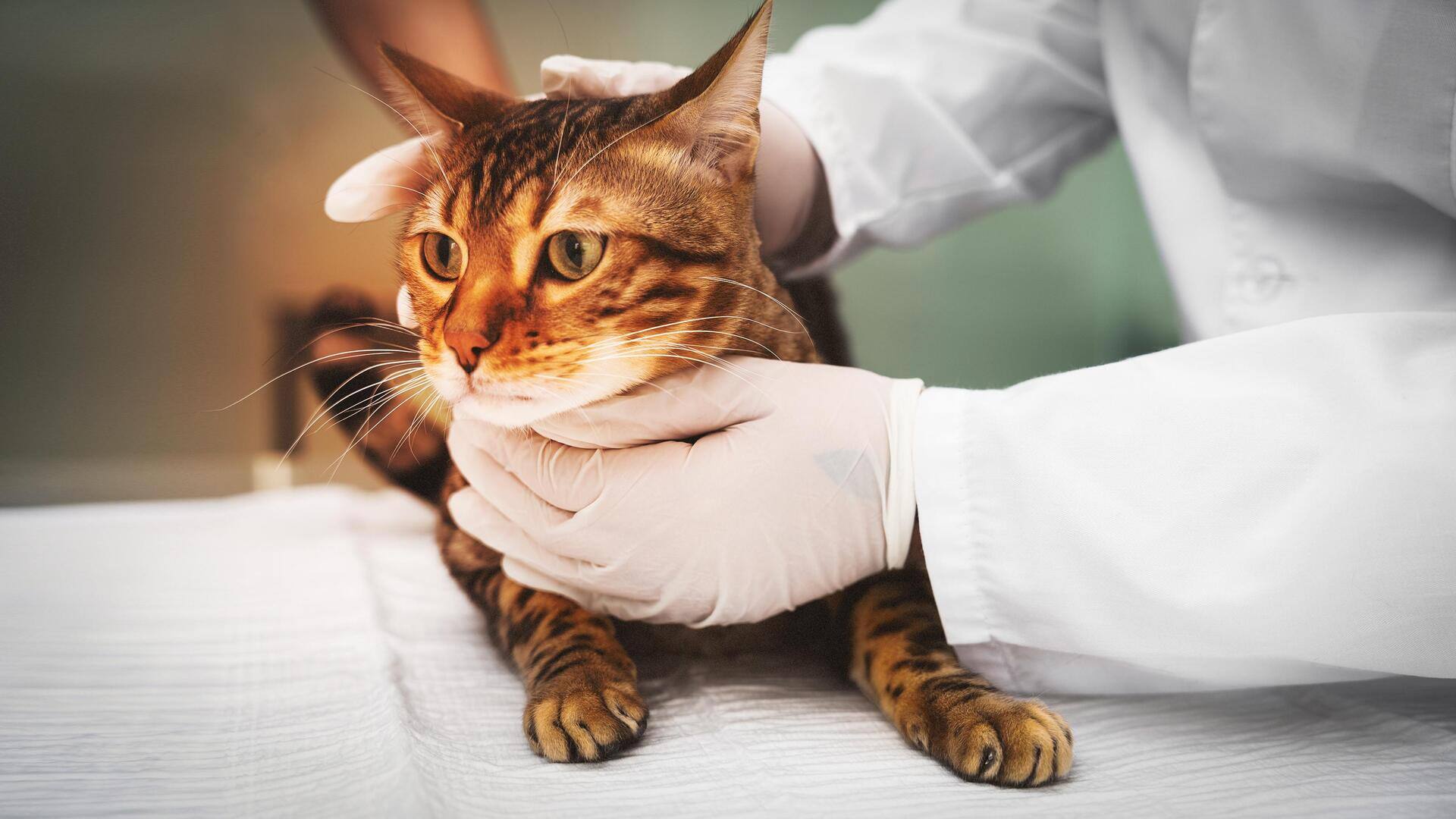
Feline Infectious Peritonitis: A cat owner's worst nightmare
What's the story
Feline Infectious Peritonitis (FIP), or Feline Coronavirus, has struck Cyprus, leading to the deaths of almost 300,000 cats. In response, the government is providing leftover human COVID-19 drugs to affected cats. This outbreak is becoming a cat owner's worst nightmare, as they grapple with the threat posed to their beloved pets. We turned to experts to understand this deadly disease affecting our feline friends.
FIP
What is Feline Infectious Peritonitis?
FIP is a viral disease found in cats, resulting from a mutated version of the feline coronavirus. Although feline coronavirus is widespread among cats, infecting 80-90% of them at some stage, only a minority (about 5-10%) of those infected will develop FIP. It is important to note that the feline coronavirus and the human coronavirus causing COVID-19 are not the same.
Signs
Symptoms of FIP
FIP in cats can have different symptoms initially, or none at all, depending on whether it's the wet or dry form. Wet FIP shows signs like loss of appetite, fever, weight loss, jaundice, diarrhea, abdominal swelling, and difficulty breathing. Dry FIP presents with fever, vomiting, loss of appetite, diarrhea, seizures, nodular growths on organs, and neurological symptoms like blindness and paralysis.
Causes
What causes FIP?
There are two main types of feline coronavirus affecting cats: the "enteric" coronavirus, primarily found in the intestines and causing diarrhea in kittens living with other cats, often without visible symptoms. The second type, the FIP-causing coronavirus, is regarded as a mutated variant of the "enteric" strain. Scientists are currently investigating the evolution from a relatively innocuous virus into the lethal FIP.
Infection
How do cats get FIP?
Coronaviruses spread mainly among cats through contact with infected feces, remaining viable for up to 36 hours. The virus can remain dormant in a cat for years and, unfortunately, may spontaneously mutate into FIP without warning. Fortunately, the majority of cases where cats contract the coronavirus are harmless and do not progress into fatal infections like FIP.
Risk
Risk factors
"While any cat can be vulnerable, we often see higher incidence among young and older cats," stated Dr. Keshav Thakur, veterinarian at Pet Point Clinic. Dr. Thakur highlights that cats that suffer from stress or illness and have weakened immune systems are at higher risk. Additionally, some cat breeds, like Abyssinians, Bengals, and Ragdolls, are said to have a higher chance of developing FIP.
Fatality
Do cats recover from FIP, or is it often fatal?
Dr. Thakur warns that when a cat gets the active form of FIP, things can be tough. Right now, there's no specific cure for this disease but the treatment aims to help with the symptoms and make the cat feel better. "Sometimes, a few cats might get better for a while with treatment, but the situation can be challenging for cat owners," he says.
Treatment
Treatment options
FIP has no cure yet, but anti-viral meds help cats with the dry form. Sadly, most cats with FIP don't survive and may need to be euthanized. Veterinarians provide palliative treatments like pain medication, drainage, and anti-inflammatories to help cats live a little longer. However, in Cyprus, as mentioned before, they are trying to use human COVID-19 medicines to treat cats with FIP.